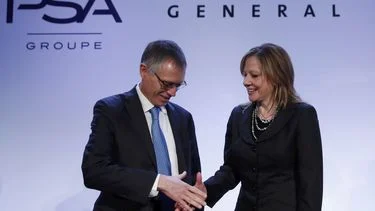Peugeot Owner PSA Close to Deal to Buy Vauxhall and Opel
The Peugeot owner PSA Group is on the brink of finalizing a significant deal to acquire Vauxhall and Opel, marking a major shift in the European automotive market. This move represents a strategic consolidation within the industry, with far-reaching implications for the companies involved, their employees, and the broader automotive landscape. Here’s an in-depth look at the potential acquisition and what it means for the automotive sector.
Details of the Proposed Deal
The PSA Group, which owns the Peugeot and Citroën brands, is nearing the completion of a deal to acquire Vauxhall and Opel from General Motors (GM). The key aspects of the deal include:
Purchase Price: While the exact financial terms of the acquisition are yet to be confirmed, reports suggest that the deal is valued at several billion euros. The agreement would see PSA take ownership of GM’s European operations, including the Vauxhall and Opel brands.
Strategic Rationale: The acquisition aligns with PSA’s strategy to expand its footprint in the European automotive market. By integrating Vauxhall and Opel into its portfolio, PSA aims to enhance its market presence and leverage synergies across its brands.
Operational Integration: The integration process will involve aligning production facilities, supply chains, and marketing strategies. PSA plans to streamline operations to achieve cost efficiencies and optimize performance across the combined entity.
Implications for the Automotive Industry
The potential acquisition of Vauxhall and Opel by PSA Group has several significant implications for the automotive industry:
1. Market Consolidation
The deal represents a major consolidation within the European automotive market. By acquiring Vauxhall and Opel, PSA Group will strengthen its position in the region, creating a more competitive and influential player in the industry. This consolidation could lead to:
Increased Market Share: The combined entity will have a larger market share, allowing PSA to compete more effectively against other major automotive manufacturers.
Enhanced Product Offering: The acquisition will broaden PSA’s product lineup, enabling the company to offer a more diverse range of vehicles to customers across Europe.
2. Operational Synergies
The integration of Vauxhall and Opel into PSA’s operations is expected to generate significant synergies, including:
Cost Savings: By streamlining production processes and consolidating supply chains, PSA aims to achieve cost efficiencies and reduce operational expenses.
Shared Technology: The merger will facilitate the sharing of technology and innovation between brands, potentially leading to advancements in vehicle design, safety features, and fuel efficiency.
Increased Efficiency: The combination of resources and expertise will enable PSA to optimize its manufacturing and distribution operations, improving overall efficiency.
3. Impact on Employees and Operations
The acquisition will have implications for employees and operational structures:
Workforce Adjustments: The integration process may involve workforce adjustments and restructuring. PSA will need to manage these changes carefully to minimize disruption and maintain employee morale.
Facility Consolidation: The deal could lead to the consolidation of production facilities and a reassessment of manufacturing capacities. PSA will need to evaluate the impact on existing plants and determine the best approach for integrating operations.
Brand Management: PSA will need to strategically manage the Vauxhall and Opel brands to ensure a smooth transition and maintain customer loyalty. This may involve repositioning the brands within the market and aligning them with PSA’s overall strategy.
Regulatory and Financial Considerations
The acquisition will be subject to regulatory approval and financial scrutiny:
Antitrust Review: The deal will require approval from antitrust regulators to ensure that it does not create anti-competitive effects in the automotive market. PSA will need to address any concerns raised by regulatory authorities.
Financial Impact: The financial performance of the combined entity will be closely monitored by investors and analysts. PSA will need to demonstrate that the acquisition creates value and delivers on its strategic objectives.
Future Outlook
Looking ahead, the acquisition of Vauxhall and Opel by PSA Group is expected to shape the future of the European automotive industry:
Increased Competition: The consolidation will intensify competition among automotive manufacturers, driving innovation and potentially leading to more competitive pricing for consumers.
Strategic Growth: The deal aligns with PSA’s growth strategy and positions the company for long-term success in the European market. The integration of Vauxhall and Opel will enhance PSA’s capabilities and market presence.
Industry Trends: The acquisition reflects broader trends in the automotive industry, including consolidation, technological advancements, and a focus on efficiency and innovation.
The potential acquisition of Vauxhall and Opel by PSA Group marks a significant development in the European automotive market. The deal promises to create a more competitive and efficient player in the industry, with the potential to deliver substantial benefits through operational synergies and expanded market presence. As the acquisition progresses, stakeholders will closely monitor its impact on the automotive sector and its implications for the future of the brands involved.

